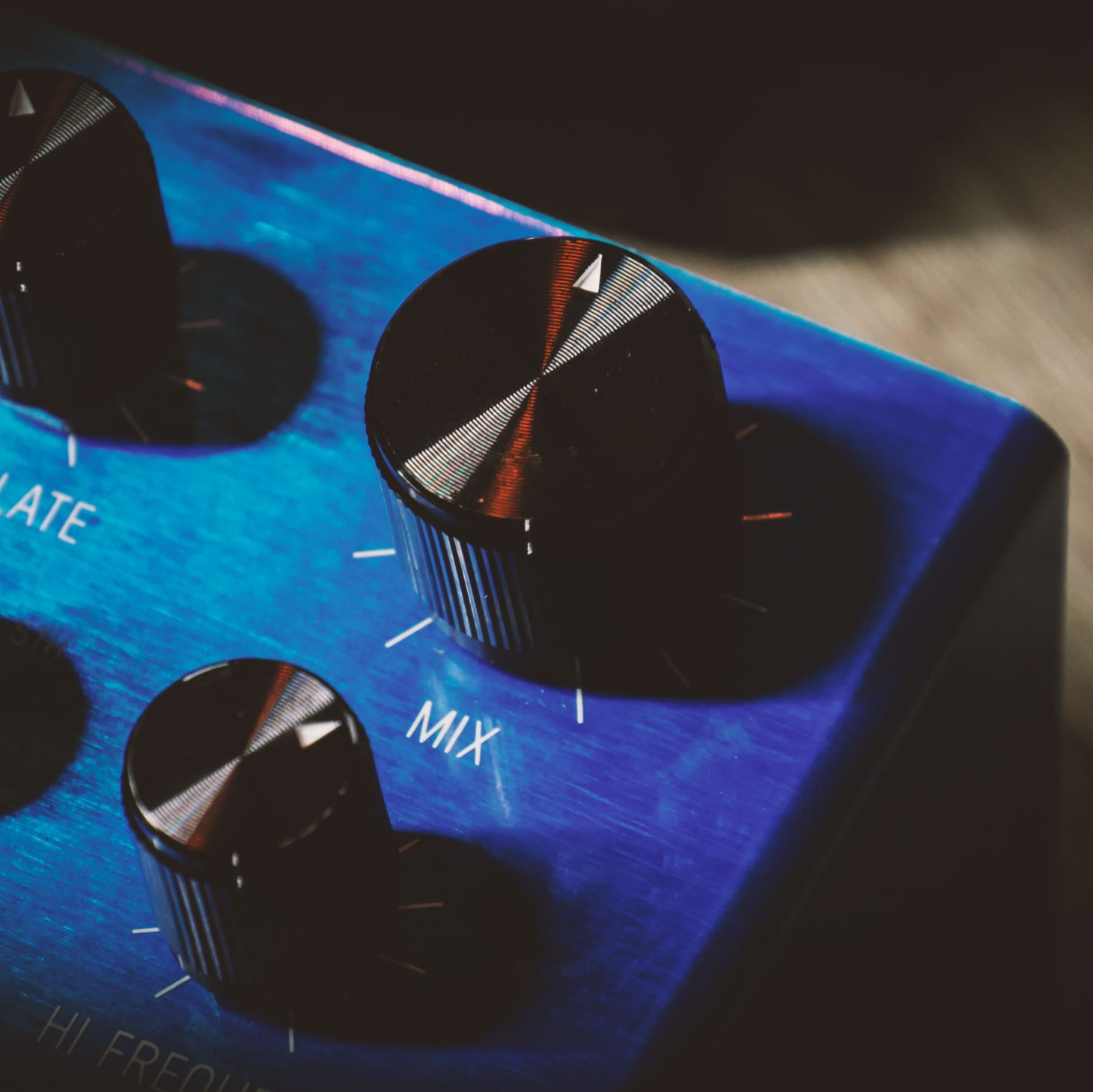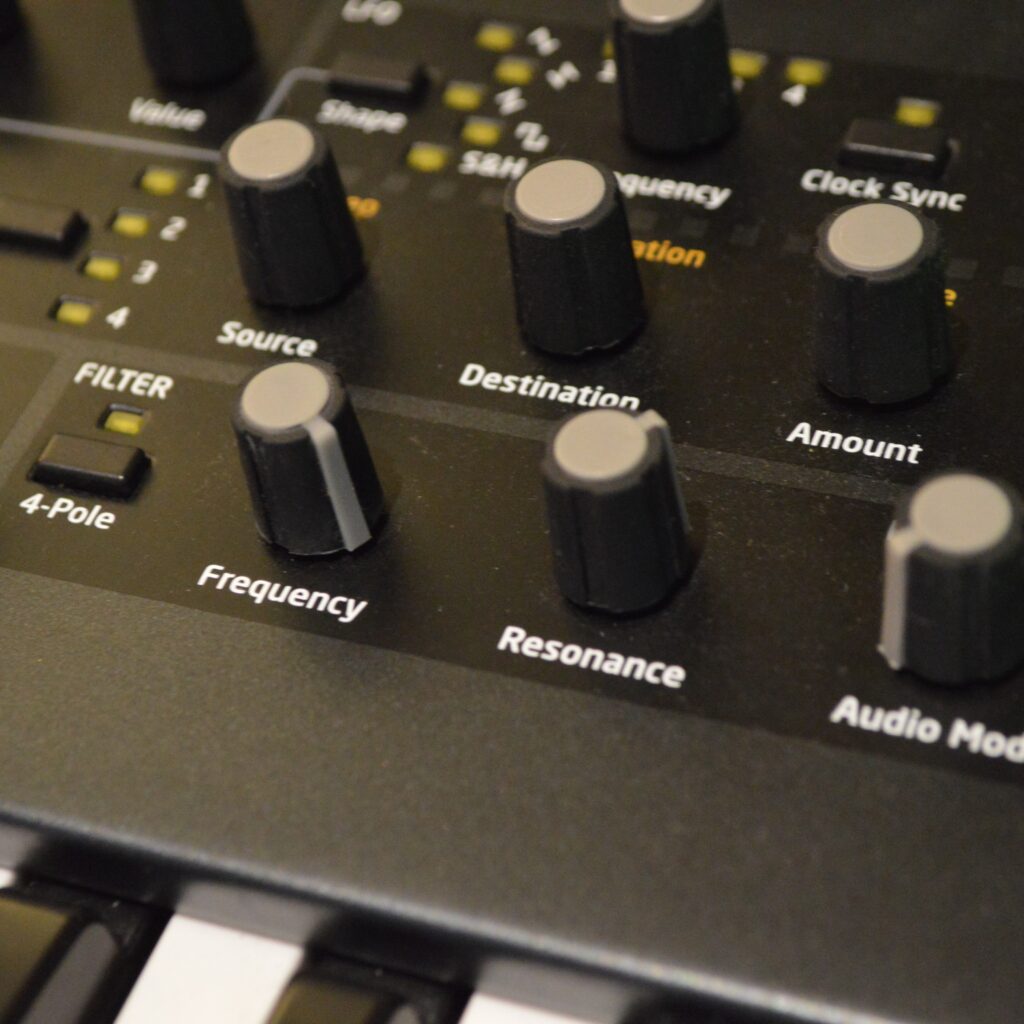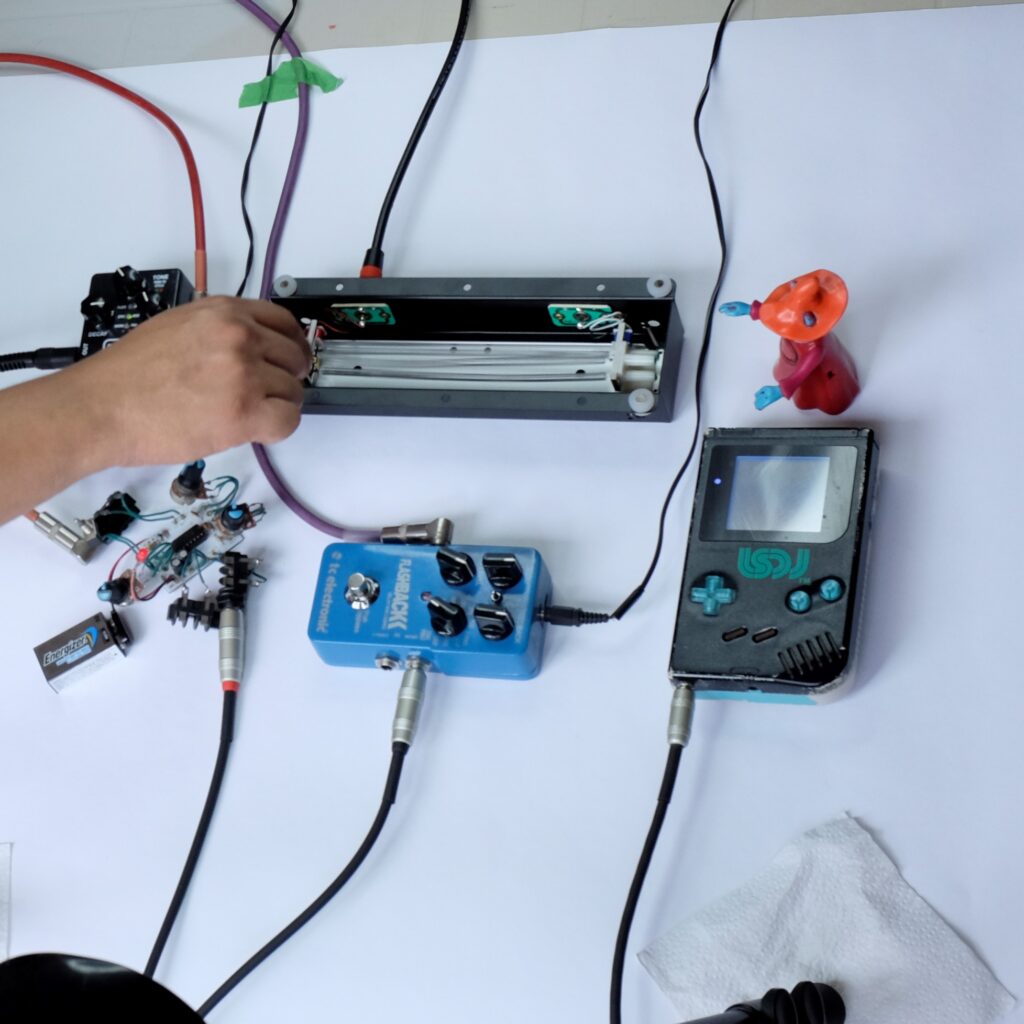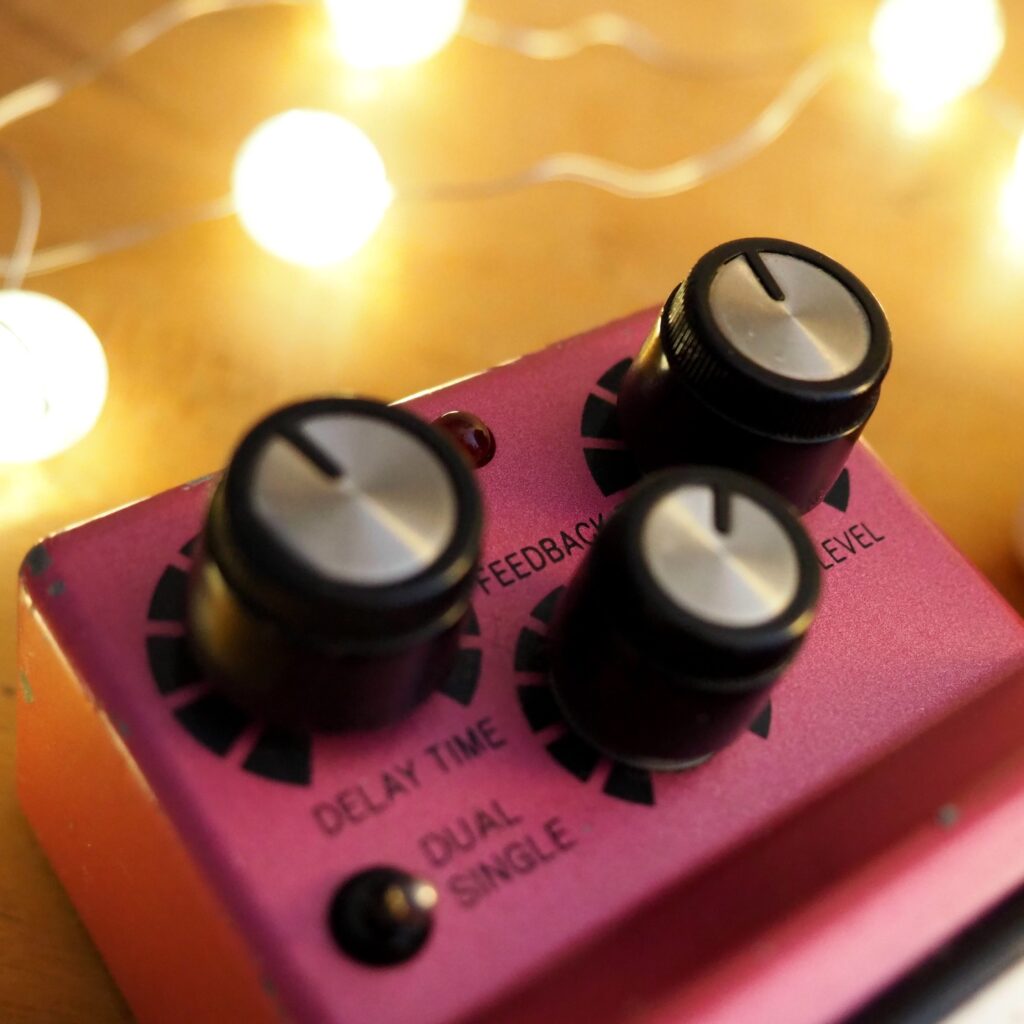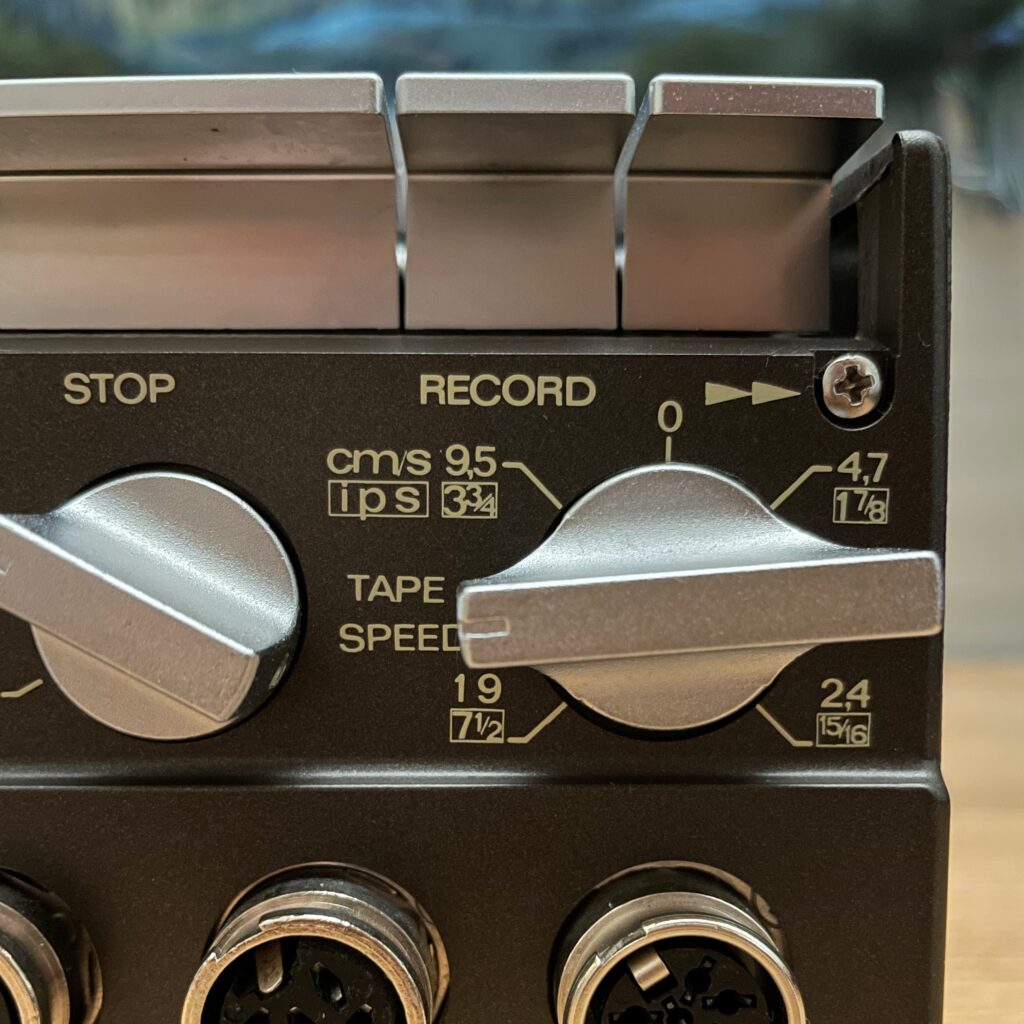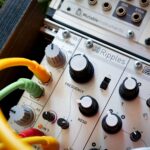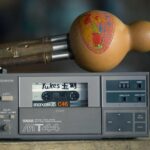1. Favourite knob or fader or switch on a piece of gear and why?
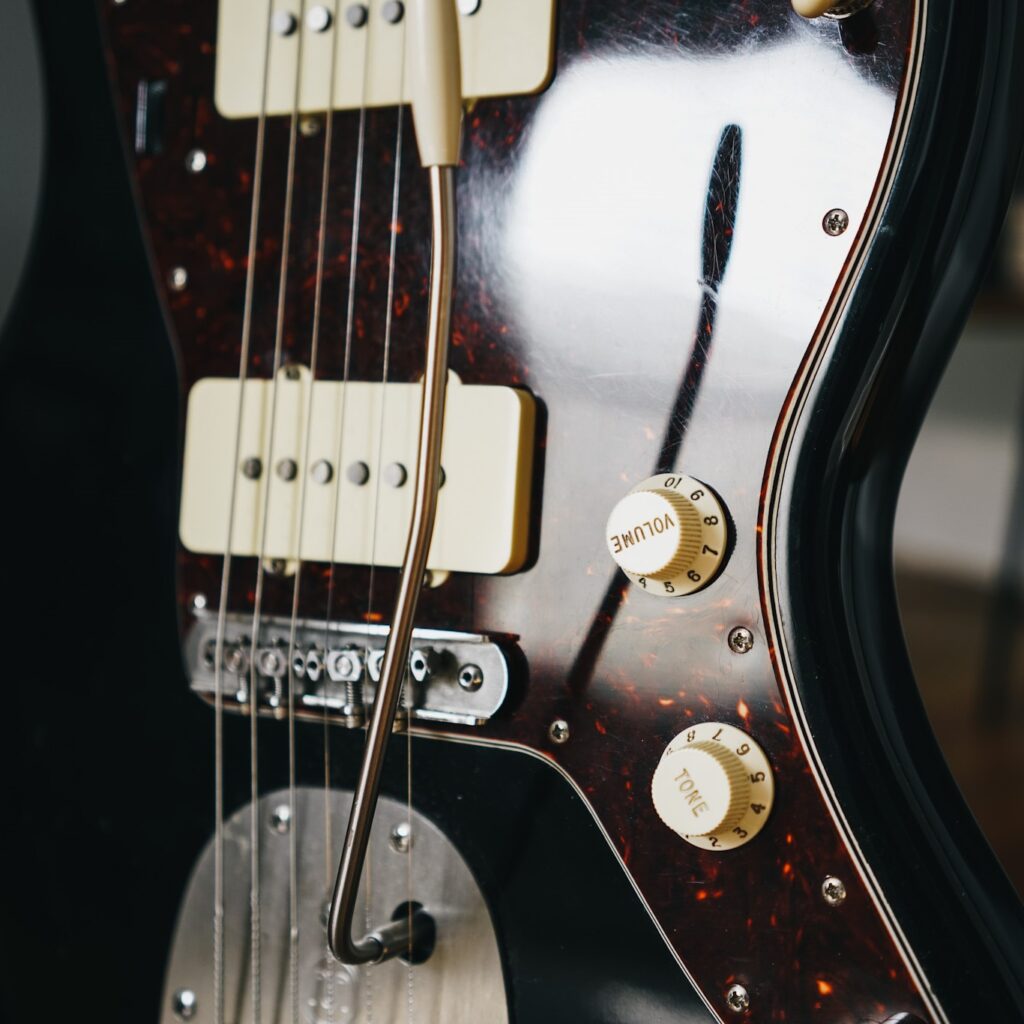
Yes, absolutely, without a doubt, the volume knob on my Jazzmaster. Coming from a band background and learning how to blend with other musicians and when to step out front, I was always using my volume knob. Mostly to clean up my tone and then to send it into overdrive. I play expressively and dynamically, never with a compressor pedal so I am always going for the volume knob. I can control swells and it’s become such second nature to my playing that my pinky just sort of rests there all the time.
2. Do you have an ‘almost’ perfect bit of kit? What would you change?
My room is pretty dialed in right now. Since my day job of being a sound designer and mix engineer for advertising, film, and TV keeps me mostly in the studio, I’ve put a lot of time and effort into making the room my instrument. I have my modular rack, my pedalboard, my synths all patched and routed so I can send and receive audio from any of those places – I have total freedom to create. But I would change the amount of space I have, haha, I always want more.
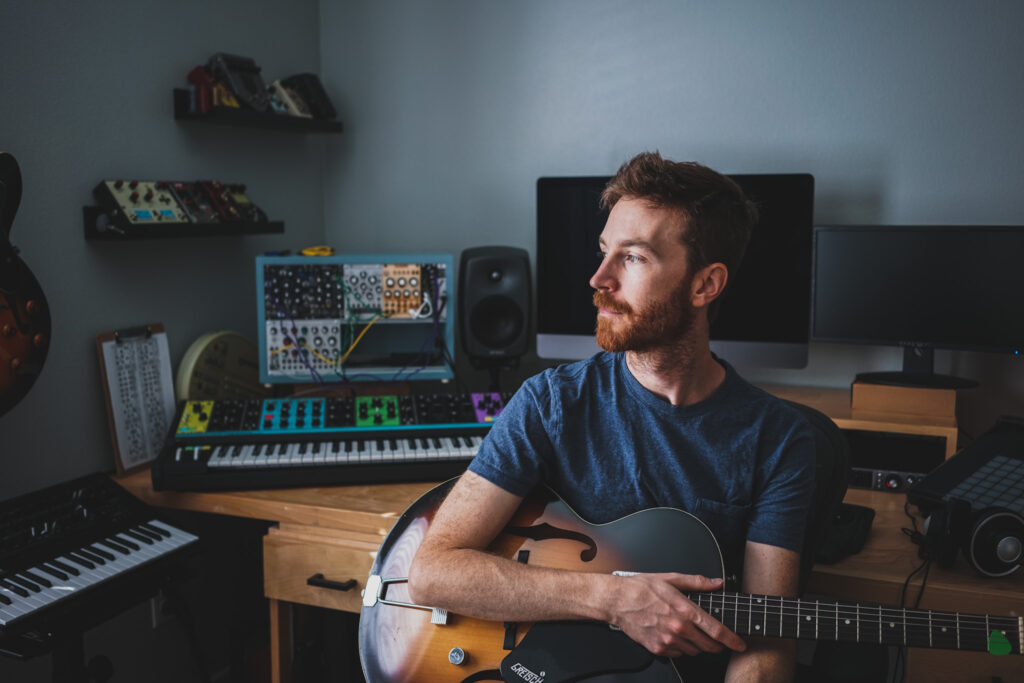
3. What setup do you bring on holiday or tour or commute etc.?
Since the start of the pandemic we haven’t traveled anywhere. And before that I wasn’t touring all that much since my live setup got pretty large, in fact, the setup got to the point where I wasn’t able to take the subway any longer – I need a cab or to drive to the gig. Which for people that have never lived in NYC, that’s a huge dealbreaker as you’ll often spend the money you made from your set on cabs. So the biggest thing for me when I go on holiday is my headphones. I try to create music every day so when I take a vacation, I am truly off-the-grid. But now that I’m in Austin which is far from my home in NYC, I have begun planning a travel/mobile rig – it’s Ableton based and I think the Arturia Keystep looks like the best investment in a tiny keyboard as I could integrate it into my modular rack as well as controlling VSTs. I fall prey to the “I want to have all my options be options” mentality, so traveling light will be a fun challenge I look forward to. I’ll have to check back in with you and keep you posted on how I net out!
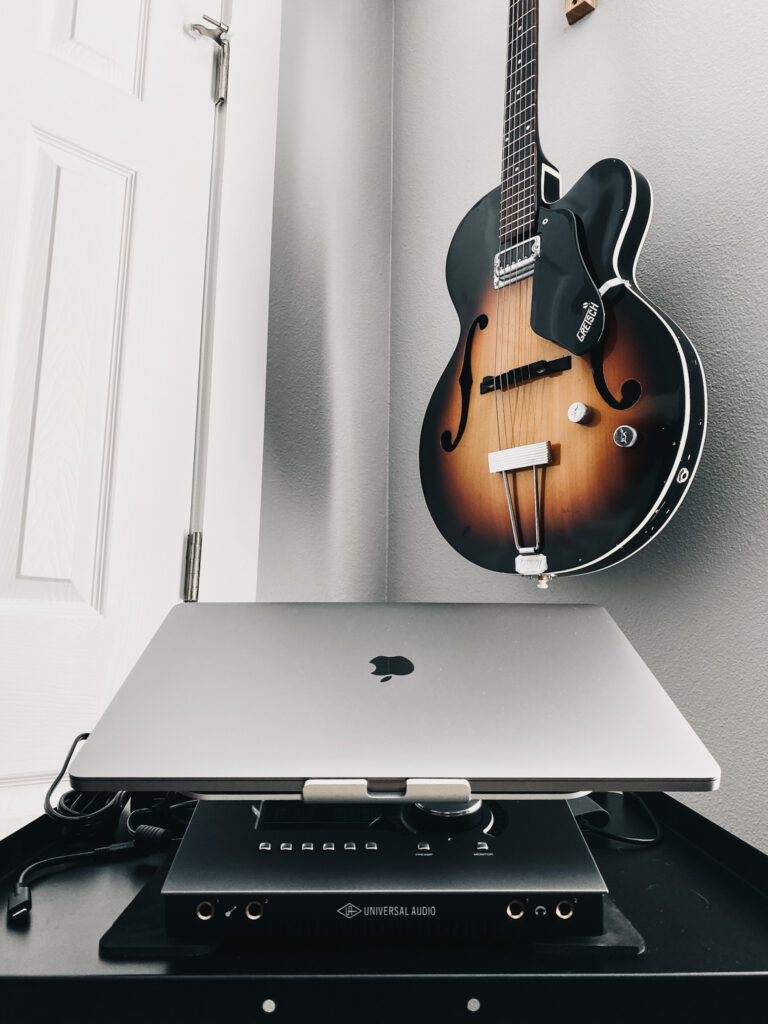
4. What software do you wish was hardware and vice versa?
An interesting question indeed. I had seen someone else you interview mention that a lot of software is hardware emulations or based on some piece of hardware, which I agree with. I don’t get picky, though I do think that having Big Sky algorithms in plug-in format would be super cool. Although, I’m sure you’d need a separate computer to run all that DSP, which then circles back to having a box, so I suppose they thought about that and why they stayed away from it. I mostly feel like there’s a companion piece of hardware or software for anything you can dream of these days, and like I said, I don’t discriminate – while, yes, an original Minimoog Model D probably sounds better than a VSTs version, I don’t have the $10k for the real thing and dang if presets aren’t awesome to recall.
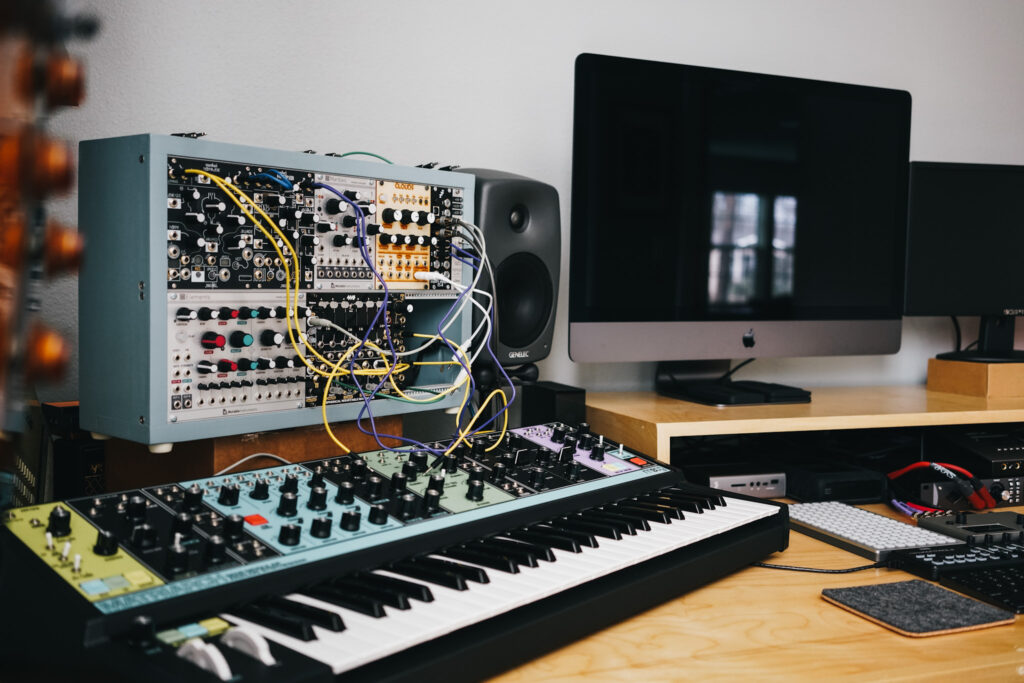
5. Is there anything you regret selling… or regret buying?
I’ve been fortunate enough to never really have buyers remorse because 30-day return policies are awesome. But I will say that I purchased the ROLI Seaboard recently with hopes and dreams of it completely transforming how I compose with strings and MPE devices and it was just…awkward. Perhaps I didn’t give it enough time to grow on me. The squishy part was fun for a bit, though I can see it attracting cat hair like crazy. I have only ever sold gear I know I was never going to use again. I tend to hang on to things because I’m a sound designer and having random old pieces of gear are inspiring and you never know when you’re going to need it.
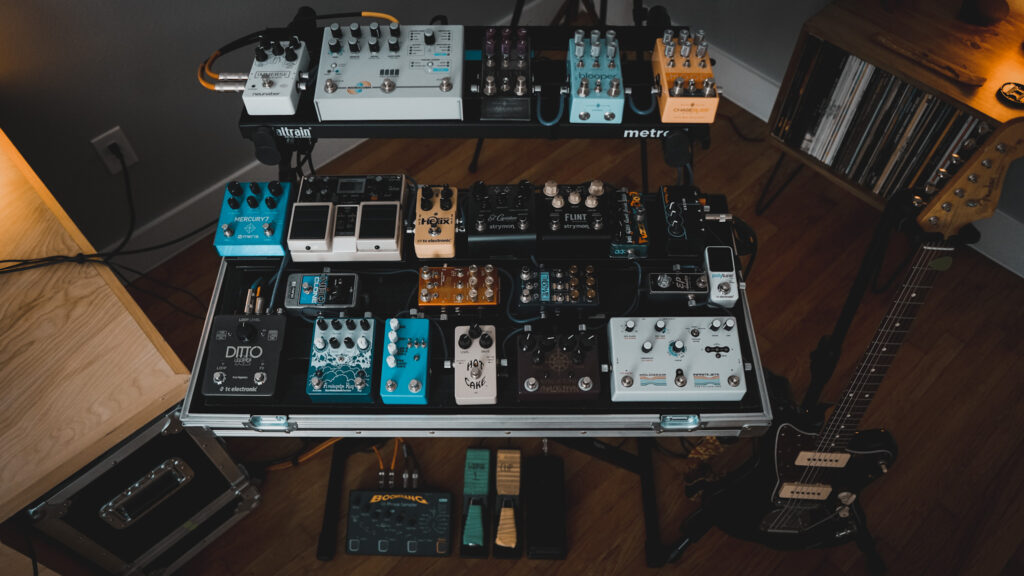
6. What gear has inspired you to produce the most music?
Surprisingly, diving into modular gear was the most inspiring and overwhelming. And now that I’ve picked up Norns and Grid, I’m feeling that same sense of “how do I control you!” which I really think makes you enter into that beginner’s mind and where the magic happens. It’s for this reason (and I’ll get roasted for this, I’m sure) that I absolutely never read a manual. I love clicking about/turning knobs/making horrible mistakes when I first get a piece of gear. I think not knowing what you’re doing is when your true talent shines through. You just kind of use The Force to figure it out and stumble your way through. But to stop getting preachy and answer your question, modular. My newest EP on Inner Ocean Records happened in about three weeks after I got all my rack set up, it was just insanely inspiring to have semi-generative sounds morphing and allowing me space to write other lines over it with other instruments.
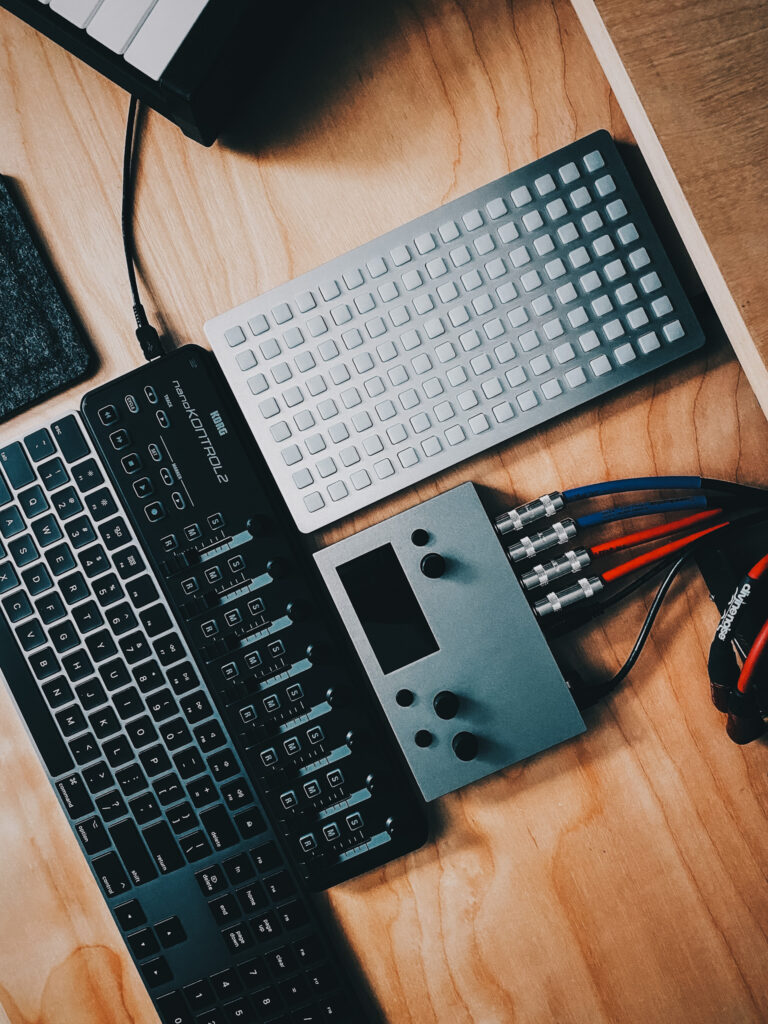
7. If you had to start over, what would you get first?
If I had to start over I would still start with just a single piece of gear and learn it completely inside and out before buying the next piece of gear. I admit to falling victim to gear acquisition a while back but I always had this sense of wanting to know how to use the gear I had before stepping up. Granted, I have a ton of pedals these days, but it took me a good three years to get to this point.
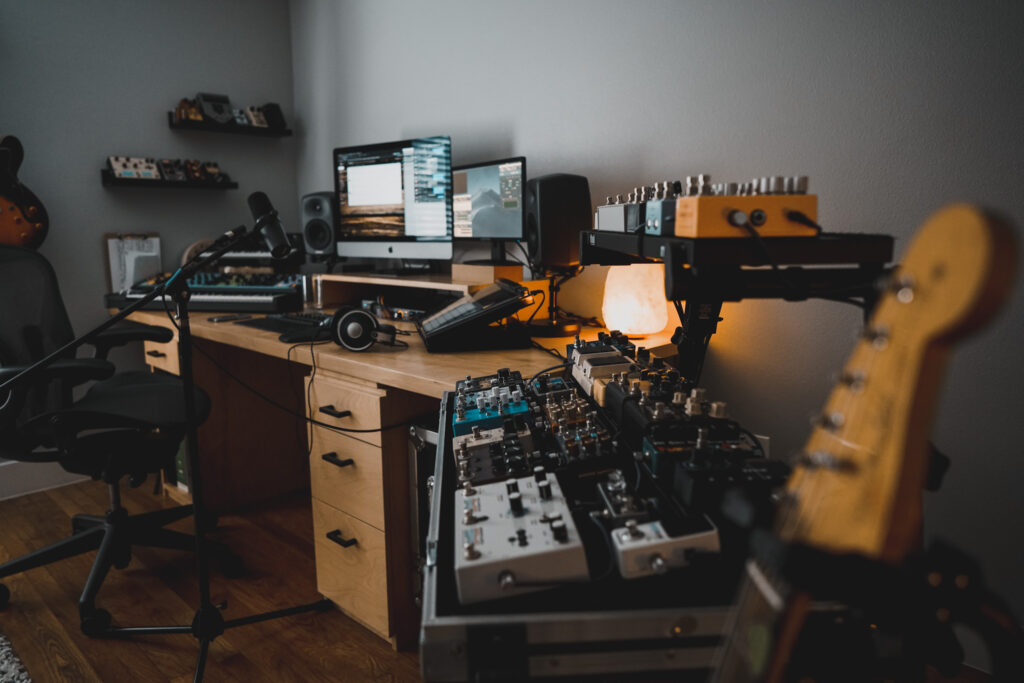
8. What’s the most annoying piece of gear you have, that you just can’t live without?
Haha, this question is great. The most annoying piece of gear I have (though I still love it) is my DD-20, the old big block delay. When the thing boots up it defaults to being on. There’s probably a way to change that but I never looked it up and when it kicks on with the board the first algo is my custom 16-second delay. So if there’s a bit of hum from the unplugged ¼” cable or I flub a note I won’t hear it for another 16-seconds, way after I’ve forgotten and then I’ll chase line hum or a looper pedal somewhere in the chain for five minutes, until I realize it’s just the delay kicking around every 16-seconds. I have Nels Cline to personally thank for making me lust after 16-second delays.
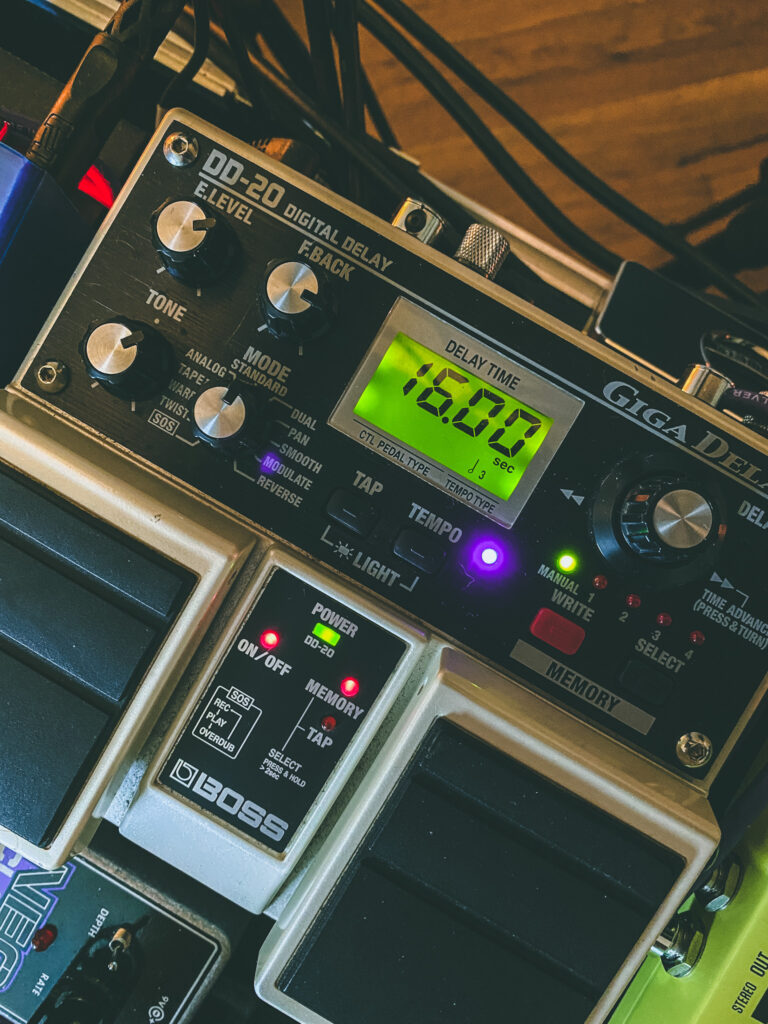
9. Most surprising tip or trick or technique that you’ve discovered about a bit of kit?
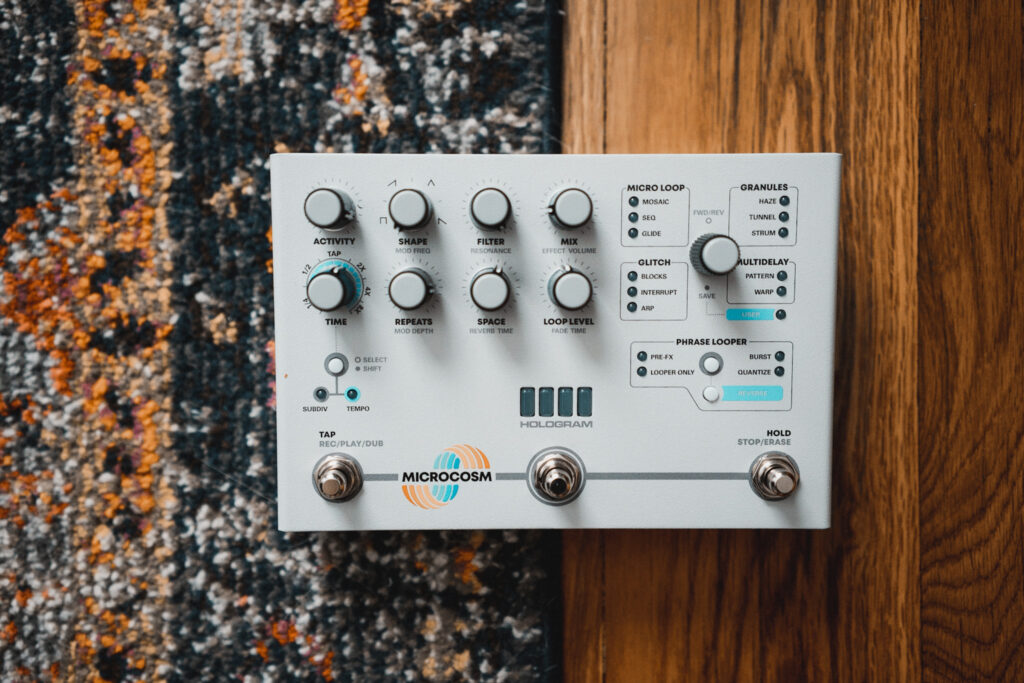
I got to be one of a very small handful of beta testers on the Hologram Microcosm, so I had the pedal well before the public did and I have never had the opportunity to speak directly to the minds that designed and created the pedals I played, so I learned tons of fun insider tricks with it. But my most favorite trick on it, is taking a live effect and capturing it into the looper and then sending that loop back through the live effects pre-effect and processing that loop a second time but through a different live effect. So fun.
[Editor: The Microcosm is gonna be a classic!]
Artist or Band name?
My name is TJ Dumser but I perform as Six Missing.
Genre?
Ambient, Electronic… Meditation Music sounds grabby, so does Furniture Music or Music for Plants. Music that allows you to do other things and zone out to it.
Selfie?
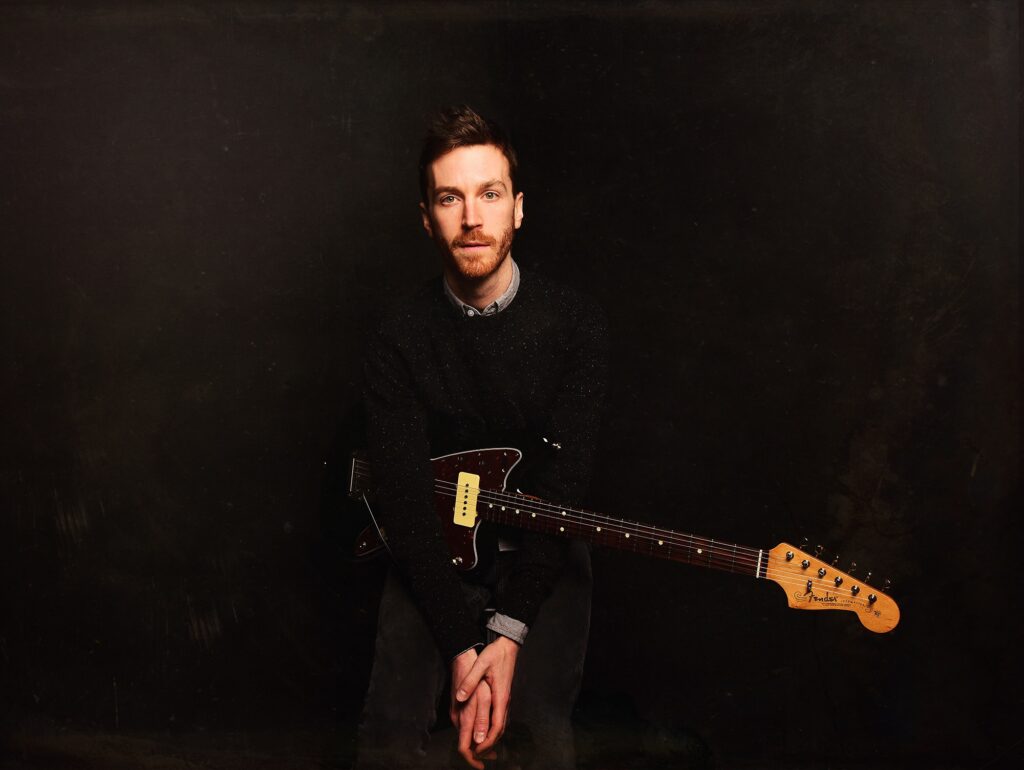
This isn’t a selfie, but I spent money on this session with this talented photographer Shervin Lainez and so I usually like to get some mileage out of it 😛
Where are you from?
I’m from NY, but have been spending the past year (lol, let’s be real, quarantine) in Austin, TX.
How did you get into music?
I have always loved music and performing, I used to do it even as a baby in diapers, shouting nonsense into a microphone and directing orchestras through the kitchen. But it really hit when I saw Back to the Future and caught my first glimpse at Marty’s red Gibson 335. After that, I uncovered milk crates of records in my grandma’s attic and heard Stairway to Heaven and had my mind blown as a 11 year old. After that, I needed to have a guitar. So I was able to convince my parents that I was interested enough for them to get me one and had been playing since I was 12.
What still drives you to make music?
Music has always been a way for me to retreat from other stresses. Given the state of the world and the general level of collective anxiety, music has given me a way to take care of myself. It’s a way that I can contribute something positive. It ends up making me genuinely feel better having taken some time to play. My hopes are that I’m able to give just even the smallest bit of relief to people who hear my music, maybe it gives them that chance to take a breath or to help them meditate or go to sleep – which I realize isn’t every musicians dream “for folks to fall asleep to my music” but hey – if that helps someone, then I’m happy.
How do you most often start a new track?
It has morphed. When I was mainly composing ambient guitar loops or guitar based tracks, I would just turn on the gear and let the DD-20 sit in 16-sec delay mode and start piling layers into it, slam that into the Ditto x 2 and knock it into half speed and that became my bed. But these days I’m spending more time with eurorack modular gear and synths like the Monome Norns. I can usually get a nice atmosphere created by sending some audio to my modular gear and manipulating over there, capture some ideas and then start adding a bass line with the Moog Matriarch. Though I’m new to it, Norns is massively inspiring and I love the idea of having a tiny digital bandmate taking care of melodies and rhythms for me.
How do you know when a track is finished?
I’m sure the answer is very different for the musicians you’ve interviewed, but for me my answer changes all the time. I have a set of tracks that comprise an LP, about 11 tracks, just sitting collecting dust because I “still feel like they need something” and then I have EPs that I sit and complete in a weekend. Honestly, it’s that different for me. I suppose there’s just a knowing you feel about the track, like, did I serve this? If so, I move on. Also, if I get bored with or anything I try to add to a track starts sounding like garbage or I spend far too long working on a line…that’s how I know. If the track tells me it’s complete. It’ll push away all the superfluous junk.
[Editor: That’s a different way of doing things, it sounds almost like your songs have their own desires and needs. I guess a more empathetic approach to composition by considering the needs and wants of a piece, independently from your own wishes as a composer]
Show us your current studio
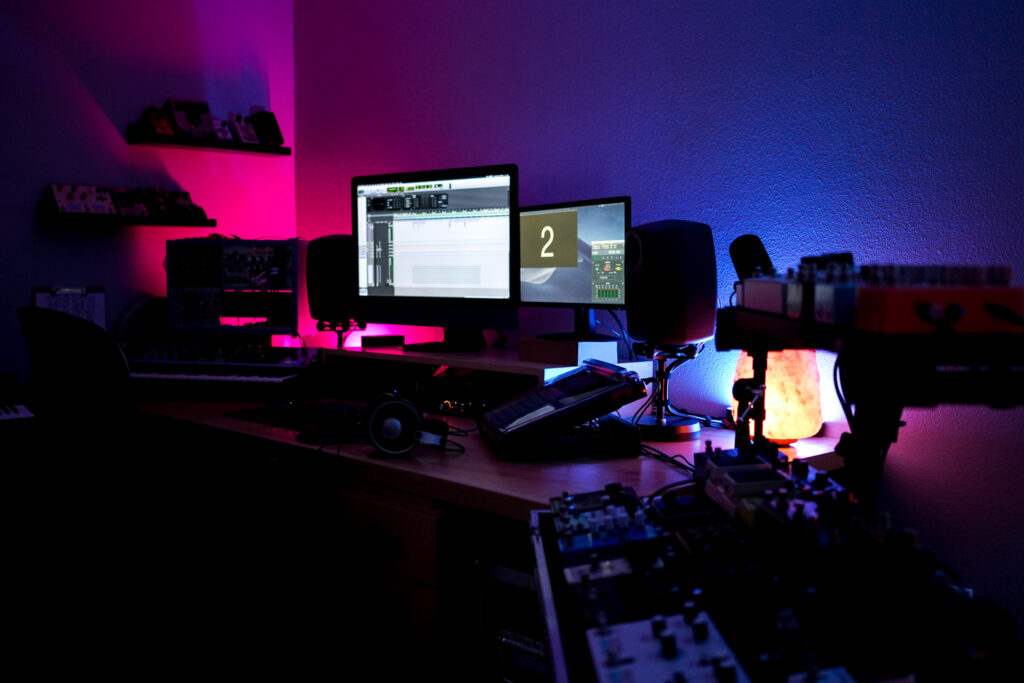
Best creative advice that you’ve ever heard?
Show up each day and do something. Whether that’s reading about someone who set out to achieve a goal or career and is doing it. Or just noodling with the guitar. Or perhaps even just turning on the synth, just to let it warm up. You don’t have to expect a masterpiece, but the fact that you’ve done something with the day means that you’ve placed your intention on it and odds are you’re going to get surprised every once in a while.
Promote your latest thing… Go ahead, throw us a link.
Thanks for asking! I have my debut EP coming out on Inner Ocean Records called “Patricia” on February 12th.
It’ll be available via Inner Ocean’s site as well as mine – or you can stay tuned to my Instagram (www.instagram.com/sixmissing) for more!
[Editor: Do you have a favorite tip, trick or way of working with any of the gear from this interview?
Then throw us a comment below…]
